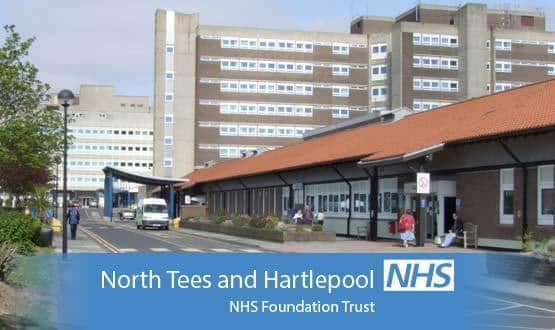InterSystems’ electronic patient record system TrakCare has gone live in an English NHS trust for the first time.
Hospital staff at North Tees and Hartlepool NHS Foundation Trust started work to roll-out the EPR on Friday and went live yesterday, 19 October.
The project is funded by £7 million from the ‘Safer Hospitals Safer Wards Technology Fund’.
TrakCare is replacing a 27-year-old patient administration system iExpress from iSoft (now CSC). Phase one also involves implementation of maternity, A&E and theatre management modules.
The trust originally intended to implement TrakCare in June 2015 but delayed this process until the autumn due to a delay in the EPR project over the Christmas period.
“The complexities of any major project can result in the final date having to be flexed to ensure the readiness of the system, processes and staff involved,” EPR programme manager Gillian Colquhoun told Digital Health News.
In an interview with BBC Tees the trust’s director of finance, ICT and support services Lynne Hodgson, said it took a little longer than expected to complete the implementation of the system in the first areas of A&E and the emergency assessment unit.
“By the time we got staff registered on the system, by the time we got them familiar with the system – we didn’t want to leave anybody until they were very comfortable with it – it just took a little bit longer than planned.”
She added that full roll-out would be done in several stages, with electronic records created for new patients and old records being scanned only for patients who come into the hospital.
“I don’t think we will ever get to the stage where we will get rid of all the paper records because some people might have only been in hospital once and if they don’t come in that paper bible will be still have to stay there.”
She mentioned that the trust’s immediate focus is on getting the system embedded at its hospitals, but that future plans include a portal for hospital staff to view GP records and vice versa.
The trust released a statement last week asking the local population to be “patient” as it transitioned to working with TrakCare.
Hodgson said: “As with any major change a massive amount of training has taken place but we’re still expecting there to be some teething problems as staff get used to working with the new system.
“It’s a bit like when people get a new computer, tablet or mobile phone at home but just on a very large scale; it takes time to get used to it.”
She added: “We’re just asking at this time that patients and relatives bear with us while the new system is bedding in.
“We are ensuring there are additional staff available to do any trouble shooting and make sure patients get the care and treatment they need as soon as possible but if people could be aware that we’re all getting used to a new way of working that would be very much appreciated.”
The go-live is a major step for Intersystems’ TrakCare, which covers around 70% of the population in Scotland.
Other English trusts to confirm they are going with the system include Gloucestershire Hospitals NHS Foundation Trust, Northern Devon Healthcare NHS Trust, Yeovil District Hospital NHS Foundation Trust and, most recently, Stockport NHS Foundation Trust.

